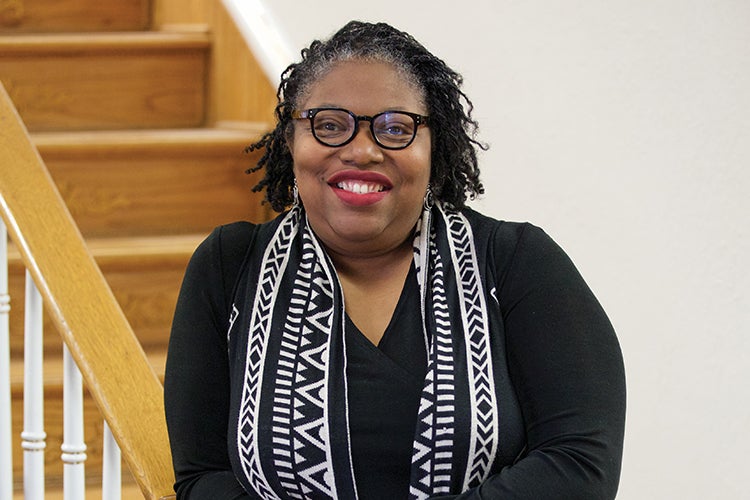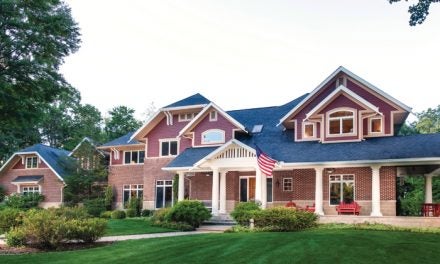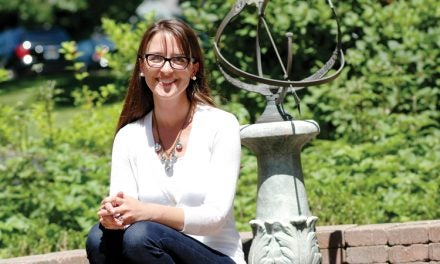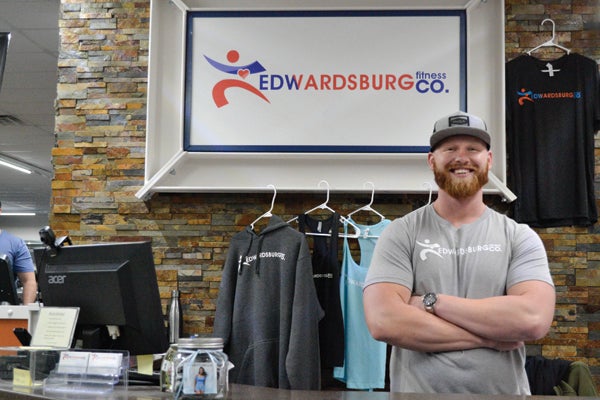Photography by Ann Reiff
The story of how Deborah Hackworth became the Director of Advocacy Services for Domestic and Sexual Abuse Services starts with a piece of advice she received from her mother, Rita Reed, after her first day volunteering her time at the battered women’s shelter.
“You have the power to change the atmosphere wherever you go,” Rita said.
“The shelter was so sad and overwhelming to be there,” Deborah recalls. “I just didn’t want that heaviness to follow me home.”
Heeding her mom’s advice, Deborah set out to change the atmosphere of the shelter. She took down the posters of battered women, replacing them with affirmations. She replaced dim lightbulbs with higher wattage bulbs, opened curtains and let the sun shine in.
Working in a shelter that serves more than 200 people in an average year is not for the faint of heart, and Deborah knows that better than most.
“I love what I do,” she says. “My mom’s adolescent years were rough. She was 18 and married, working in a factory, having another bad day, when this woman she worked with, Alma Baxter, asked my mom, ‘Rita, what is the matter?’ and then she listened to her reply.”
That question changed her mother’s life, and Deborah carries her mother’s story with her every day.
“She asked her at the right time. She stayed there, and she listened and then she showed her where there was hope, and talked to her about God,” Deborah says. “No one had really ever talked to her about God, or invited her to church. My mom’s life changed in that moment.”
With her newfound strength, Deborah’s mom found her place in the church, became fast friends with Alma, and later moved with the congregation to set up a new church on Tharp Lake in Cassopolis, where Deborah’s parents met, fell in love and were married. Alma moved, too, and became the church’s first pastor.
Deborah grew in a family and environment that empowers women, and she works to share that with the women she meets through DASAS, but she did not grow up thinking she would one day work with abused women. That moment came in her early adult years.
“When Alma passed away, I can remember standing, literally and figuratively, at the crossroads of my life,” Deborah says. “There was a sidewalk that went from her house to the church and there was a square in the middle of the path. I was standing there looking at her bedroom window and I turned and I could see my grandmother’s old bedroom window. My prayer was, ‘God let me be to one person that they’ve been to me.’”
As a young stay-at-home mom at the time, she shrugged off the thought, thinking the emotions of the day had gotten to her. Then she began to notice the change she was to become.
“Things just began to happen,” she says. “I would go to the grocery store and I would be going down the aisle and lock eyes with someone, and I would say, ‘Hi, how are you?’ and they would just tell me.”
Complete strangers were opening up to her. To her, it felt like a calling.
“I tell my advocates in training that if you don’t already have a tattoo on your forehead that says ‘Talk to me’ — visible to only those in need — you are going to have it after you go through your training,” Deborah says.
DASAS, originally started as a women’s shelter in Three Rivers, has been serving Cass County with services since the 1990s, when Judge Susan Dobrich requested the organization start the task force on family violence. Since then the organization has grown to include offices at the Wesley House, part of the First United Methodist Church in Dowagiac, where Deborah’s office is located.
Deborah oversees all non-residential services from that location. Support groups are hosted there for individuals and groups.
“If someone needs help they can come to the Wesley House,” Deborah says. “As advocates we are there to walk alongside them and guide them to let them know what their resources, choices and options are.”
Deborah is excited that the agency is expanding its services to include more training, advocates, resources and programming.
The Red Flag Campaign, a public awareness initiative designed to prevent dating violence by teaming up with area high schools, is one way Deborah has worked to raise awareness in the community.
“Working with students and teenagers to give them the resources they need to help, to make a difference in their friends’ lives — it’s so important,” Deborah says.
As her work continues with DASAS she looks forward to pursuing more of these types of relationships with schools, to work to make more information available, and help adolescents see what healthy relationships look like.
“I am not just a person who woke up one day and decided to do good things,” Deborah says. “I stand on the shoulders of so many women who have, and still are, pouring into my life, and I wouldn’t be able to do it without them. From Alma Baxter, who asked my mom what was wrong, to my grandmothers who were loving and caring, industrious women, and of course my mom, who is still teaching me today.”





